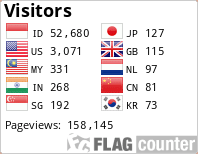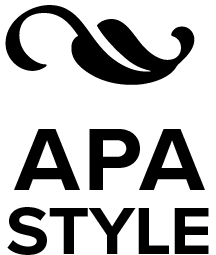KECEMASAN BIDAN DALAM MEMBERIKAN PELAYANAN KEBIDANAN PADA MASA PANDEMI COVID-19
Abstract
At this time Covid-19 is the most important problem and challenges world health organizations and governments around the world. Like other pandemics, covid-19 can cause serious mental health problems among the public and health workers. The important role of health workers during a pandemic makes them more vulnerable to anxiety and stress. This research is a descriptive study which aims to determine the level of anxiety of midwives in providing health services during the Covid-19 pandemic. The population in this study were midwives who provided midwifery services during the Covid 19 pandemic. Sampling was taken by total sampling, where 58 midwives were obtained who completed the research questionnaire. The instrument for assessing anxiety uses the GAD 7 (Generalized Anxiety Disorder-7) anxiety measurement tool which is presented in the form of an electronic questionnaire via google form. The results showed that more than half of the respondents had no anxiety, less than half of the respondents had mild anxiety and a small proportion of respondents had moderate anxiety. It is very important for midwives to manage their own anxiety and anxiety to provide healthy psychosocial care to pregnant women whom they will care for during pregnancy, childbirth and puerperium.
Metrics
References
Aksoy, Y. E., & Koçak, V. (2020). Psychological effects of nurses and midwives due to COVID-19 outbreak: The case of Turkey. Archives of Psychiatric Nursing.
Cai, H., Tu, B., Ma, J., Chen, L., Fu, L., Jiang, Y., & Zhuang, Q. (2020). Psychological Impact and Coping Strategies of Frontline Medical Staff in Hunan Between January and March 2020 During the Outbreak of Coronavirus Disease 2019 (COVID-19) in Hubei, China. Medical Science Monitor: International Medical Journal of Experimental and Clinical Research, 26, e924171-1.
Elbay, R. Y., Kurtulmuş, A., Arpacıoğlu, S., & Karadere, E. (2020). Depression, Anxiety, Stress Levels of Physicians and Associated Factors In Covid-19 Pandemics. Psychiatry Research, 113130.
Fadli, F., Safruddin, S., Ahmad, A. S., Sumbara, S., & Baharuddin, R. (2020). Faktor yang Mempengaruhi Kecemasan pada Tenaga Kesehatan Dalam Upaya Pencegahan Covid-19. Jurnal Pendidikan Keperawatan Indonesia, 6(1), 57–65. https://doi.org/10.17509/jpki.v6i1.24546
Giusti, E. M., Pedroli, E., D’Aniello, G. E., Badiale, C. S., Pietrabissa, G., Manna, C., Badiale, M. S., Riva, G., Castelnuovo, G., & Molinari, E. (2020). The psychological impact of the COVID-19 outbreak on health professionals: a cross-sectional study. Frontiers in Psychology, 11.
Groth, L. (2020). What is PPE? Everything You Need to Know About Personal Protective Equipment Amid the Coronavirus Outbreak. https://www.health.com/condition/infectious-diseases/coronavirus/what-is-ppe. diakses tanggal 26 September 2020 Pukul 13.00 WIB.
Huang, J. Z., Han, M. F., Luo, T. D., Ren, A. K., & Zhou, X. P. (2020). Mental health survey of 230 medical staff in a tertiary infectious disease hospital for COVID-19. Zhonghua Lao Dong Wei Sheng Zhi Ye Bing Za Zhi= Zhonghua Laodong Weisheng Zhiyebing Zazhi= Chinese Journal of Industrial Hygiene and Occupational Diseases, 38, E001–E001.
Ikatan Dokter Indonesia. (2020). pedoman standar perlindungan dokter di era covid-19.
Kementerian Kesehatan RI. (2020). SITUASI TERKINI PERKEMBANGAN NOVEL CORONAVIRUS (COVID-19).
Labrague, L. J., & De los Santos, J. A. A. (2020). COVID‐19 anxiety among front‐line nurses: Predictive role of organisational support, personal resilience and social support. Journal of Nursing Management.
Lai, J., Ma, S., Wang, Y., Cai, Z., Hu, J., Wei, N., Wu, J., Du, H., Chen, T., & Li, R. (2020). Factors associated with mental health outcomes among health care workers exposed to coronavirus disease 2019. JAMA Network Open, 3(3), e203976–e203976.
Mohindra, R., Ravaki, R., Suri, V., Bhalla, A., & Singh, S. M. (2020). Issues relevant to mental health promotion in frontline health care providers managing quarantined/isolated COVID19 patients. Asian Journal of Psychiatry, 51, 102084.
Moss, D. (2002). Psychological perspectives: Anxiety disorders: Identification and intervention. Performance Anxiety: Origins and Management, January.
Munir, S., Gondal, A.Z., & Takov, V. (2019). Generalized anxiety disorder. https://www.ncbi.nlm.nih.gov/books/NBK441870
Phelan, A. L., Katz, R., & Gostin, L. O. (2020). The novel coronavirus originating in Wuhan, China: challenges for global health governance. Jama, 323(8), 709–710.
Pouralizadeh, M., Bostani, Z., Maroufizadeh, S., Ghanbari, A., Khoshbakht, M., Alavi, S. A., & Ashrafi, S. (2020). Anxiety and depression and the related factors in nurses of Guilan University of Medical Sciences hospitals during COVID-19: A web-based cross-sectional study. International Journal of Africa Nursing Sciences, 13, 100233.
Rector, N. A., Bourdeau, D., Kitchen, K., & Massiah, L. J. (2011). Anxiety Disorders an Information Guide.
Rodriguez, R. M., Medak, A. J., Baumann, B. M., Lim, S., Chinnock, B., Frazier, R., & Cooper, R. J. (2020). Academic Emergency Medicine Physicians’ Anxiety Levels, Stressors, and Potential Stress Mitigation Measures During the Acceleration Phase of the COVID‐19 Pandemic. Academic Emergency Medicine, 27(8), 700–707.
Si, M., Su, X., Jiang, Y., Wang, W., Gu, X., Ma, L., Li, J., Zhang, S., Ren, Z.-F., Liu, Y.-L., & Qiao, Y.-L. (2020). The Psychological Impact of COVID-19 on Medical Care Workers in China. SSRN Electronic Journal, 1–13. https://doi.org/10.2139/ssrn.3592642
Sögüt, S., Dolu, İ., & Cangöl, E. (2020). The relationship between COVID‐19 knowledge levels and anxiety states of midwifery students during the outbreak: A cross‐sectional web‐based survey. Perspectives in Psychiatric Care.
Supriyatin. (2020). 2.291 Bidan Terpapar, 22 Meninggal Dunia Akibat Covid-19. https://m.merdeka.com/peristiwa/2291-bidan-terpapar-22-meninggal-dunia-akibat-covid-19.html diakses tanggal 27 Septemper Pukul. 10.00 WIB.
Temsah, M.-H., Al-Sohime, F., Alamro, N., Al-Eyadhy, A., Al-Hasan, K., Jamal, A., Al-Maglouth, I., Aljamaan, F., Al Amri, M., & Barry, M. (2020). The psychological impact of COVID-19 pandemic on health care workers in a MERS-CoV endemic country. Journal of Infection and Public Health.
Thapa, B., Gita, S., Chatterjee, K., & Devrani, A. (2020). Impact of COVID-19 on the Mental Health of the Society & HCW ( Healthcare workers ): A Systematic Review. International Journal of Science and Healthcare Research, 5(May), 234–240.
Vafaei, H., Roozmeh, S., Hessami, K., Kasraeian, M., Asadi, N., Faraji, A., Bazrafshan, K., Saadati, N., Aski, S. K., & Zarean, E. (2020). Obstetrics Healthcare Providers’ Mental Health and Quality of Life During COVID-19 Pandemic: Multicenter Study from Eight Cities in Iran. Psychology Research and Behavior Management, 13, 563.
Vindegaard, N., & Benros, M. E. (2020). COVID-19 pandemic and mental health consequences: systematic review of the current evidence. Brain, Behavior, and Immunity.
World Health Organization. (2020). Coronavirus disease (COVID-19) outbreak: rights, roles and responsibilities of health workers, including key considerations for occupational safety and health. World Health Organization, Interim Guidance, 19.
Xiang, Y.-T., Yang, Y., Li, W., Zhang, L., Zhang, Q., Cheung, T., & Ng, C. H. (2020). Timely mental health care for the 2019 novel coronavirus outbreak is urgently needed. The Lancet Psychiatry, 7(3), 228–229.

















